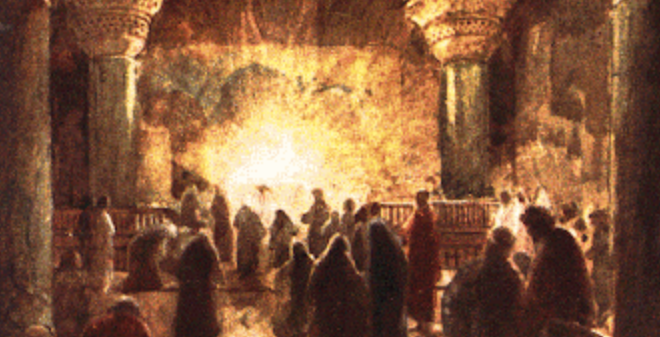In this concluding part of his interview with Pastor Richard Henry, Gary further discusses the recent heresy controversy.
As the New Testament makes clear, apostasy was rampant almost from the church’s inception. The apostasy about which John wrote was operating in his day. Paul had to counter a “different gospel” that was “contrary” to what he had preached (Gal. 1:6–9). He had to battle “false brethren” (2:4, 11–21; 3:1–3; 5:1–12). He warned the Ephesian church leadership that “men will arise, speaking perverse things, to draw away the disciples after them” (Acts 20:28–30). Theological insurrection came from within the Christian community.
Many people prior to Jerusalem’s destruction in A.D. 70 questioned and disputed basic Christian doctrines like the resurrection (2 Tim. 2:18); some even claimed that the resurrection was an impossibility (1 Cor. 15:12). Strange doctrines were taught. Some “Christians” prohibited marriage (1 Tim. 4:1–3). Others denied the validity of God’s good creation (Col. 2:8, 18–23). The apostles found themselves defending the faith against numerous false teachers and “false apostles” (Rom. 16:17–18; 2 Cor. 11:3–4, 12:15; Phil. 3:18–19; 1 Tim. 1:3–7; 2 Tim. 4:2–5). Apostasy increased to such an extent that Paul had to write letters to a young pastor who was experiencing these things firsthand (1 Tim. 1:19–20; 6:20–21; 2 Tim. 2:16–18; 3:1–9, 13; 4:10, 14–16). In addition, entire congregations fell to apostasy:
One of the last letters of the New Testament, the book of Hebrews, was written to an entire Christian community on the very brink of wholesale abandonment of Christianity. The Christian church of the first generation was not only characterized by faith and miracles; it was also characterized by increasing lawlessness, rebellion, and heresy from within the Christian community—just as Jesus foretold in Matthew 24.15. [1]
The book of Revelation recounts such heretical teachings: “evil men” (2:2), “those who call themselves apostles” but who are found to be “false” (2:6), a revival of “the teaching of Balaam” (2:14), those “who hold the teaching of the Nicolaitans” (2:15), the toleration of the “woman Jezebel … who leads” God’s “bond-servants astray, so that they commit acts of immorality and eat things sacrificed to idols” (2:20). The apostasy was alive and well on planet earth in the first century (2 Thess. 2:3).

Last Days Madness
In this authoritative book, Gary DeMar clears the haze of "end-times" fever, shedding light on the most difficult and studied prophetic passages in the Bible, including Daniel 7:13-14; 9:24-27; Matt. 16:27-28; 24-25; Thess. 2; 2 Peter 3:3-13, and clearly explaining a host of other controversial topics.
Buy NowIn this concluding part of his interview with Pastor Richard Henry, Gary further discusses the recent heresy controversy. Calling people and their views “heretical” happens far too often among Christians. Doctrines that deny the divinity and the humanity of Christ are indeed heretical (as 1 John makes clear), but differences over interpretations of the “end times” or what happens after death are not in the same category.
Click here for today’s episode
Click here to browse all episodes of The Gary DeMar Podcast
[1] David Chilton, Paradise Restored: A Biblical Theology of Dominion (Tyler, TX: Institute for Christian Economics, 1985), 108.

